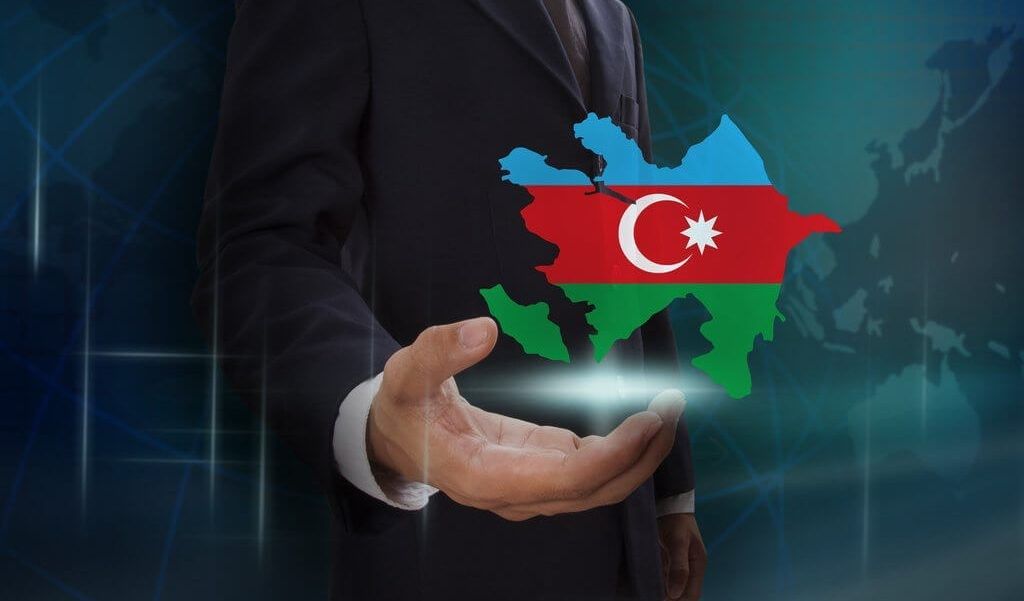The foundation of Azerbaijan’s remarkable achievements lies in
the efficient management system of the Republic. At the heart of
the nation’s successful politics is a thriving economy.
President Ilham Aliyev has consistently emphasized the
importance of a robust economy as a cornerstone of national
success. Reflecting on the nation’s victory, he stated: “If we
didn’t have economic power, it would not have been possible to
achieve this victory. First, economic independence had to be
ensured—and it was. Today, Azerbaijan is economically independent.
It does not rely on anyone—neither any country nor any
international financial institution.”
Under President Aliyev’s leadership, Azerbaijan has embarked on
large-scale energy and transport projects, established new regional
cooperation platforms, and assumed key roles in prestigious
international organizations. The country’s increasing global
standing is further demonstrated by its hosting of major global
events, such as the upcoming COP29 UN Climate Change Conference.
The choice of Azerbaijan to host this critical international event
is a clear reflection of the growing prestige and influence the
country holds on the global stage.
President Ilham Aliyev’s successful governance has laid the
groundwork for Azerbaijan’s economic prosperity, strengthened its
position within the international community, and solidified its
place among the world’s leading and most powerful nations.
A key aspect of Azerbaijan’s economic policy is its focus on
improving citizens’ living standards while fostering trust between
the state, society, and economic actors. Through systematic efforts
to diversify the economy, the government has significantly reduced
dependence on the oil and gas sector, while simultaneously
expanding the non-oil sector and increasing non-oil exports.
The diversification of Azerbaijan’s economy is a work in
progress, supported by key state programs and macroeconomic
projects that aim to balance the oil and non-oil sectors. This
strategic diversification strengthens Azerbaijan’s geopolitical
position, cementing the country as a regional leader and an
important partner in global peace and security.
Azerbaijan’s energy exports further demonstrate its strategic
importance. Azerbaijani natural gas is now delivered to eight
countries, including seven European nations. The completion of the
Serbia-Bulgaria Gas Interconnector in Nis, Serbia, is expected to
make a significant contribution to Europe’s energy security.
Azerbaijan’s oil exports via the Baku-Tbilisi-Ceyhan and
Baku-Supsa pipelines serve Mediterranean and Black Sea markets,
while the Southern Gas Corridor—a 3,500-kilometer infrastructure
project—plays a vital role in ensuring Europe’s energy security.
Additionally, a Memorandum of Understanding on strategic energy
partnership has been signed between Azerbaijan and the European
Union, which envisions a doubling of Azerbaijan’s gas exports to
Europe by 2027.
Azerbaijan advances green energy development with
strategic projects and international partnerships
Alongside traditional energy sources such as oil and gas,
Azerbaijan is also placing significant emphasis on alternative
energy, actively pursuing joint projects with key companies and
countries in this sector. As part of its commitment to renewable
energy, President Ilham Aliyev has issued directives to utilize
renewable energy resources in the country’s newly liberated
territories.
Under the economic development strategy set by President Aliyev
for the liberated regions, transforming these areas into a “green
energy” zone is a key priority. Following the 44-day war, during a
meeting on January 6, 2021, which reviewed the economic outcomes of
2020, President Aliyev presented a strategic vision for the
establishment of a Green Energy Zone in the liberated territories,
highlighting the substantial renewable energy potential available
in these regions.
To date, Azerbaijan has actively promoted its green energy
agenda through several large-scale projects, including the
commissioning of a 230-megawatt solar power plant and the imminent
completion of a 240-megawatt solar power station. Furthermore, in
June, the foundation stones for three solar and wind power plants
were laid in Baku, with a total capacity of one gigawatt. These
projects signal Azerbaijan’s growing role in the renewable energy
sector.
Recognizing the country’s vast energy potential, leading global
energy companies such as Masdar, ACWA Power, and BP have invested
in Azerbaijan, capitalizing on its renewable energy opportunities.
Azerbaijan is well-positioned in both technical and economic terms
to harness its renewable energy resources. The country’s renewable
energy potential includes 135 gigawatts on land and 157 gigawatts
at sea. Economically, Azerbaijan’s renewable energy potential is
estimated at 27 gigawatts, with wind energy contributing 3,000 MW,
solar energy 23,000 MW, bioenergy 380 MW, and mountain river
potential adding 520 MW.
The strategic focus on renewable energy and economic
diversification in Azerbaijan highlights the country’s
forward-looking approach to sustainable development. Following the
significant victory in the 44-day war, Azerbaijan has not only
reclaimed its territories but is also positioning itself as a
regional leader in green energy. The President’s vision for
transforming these newly liberated areas into a “green energy” zone
reflects the nation’s commitment to long-term, environmentally
sustainable growth.

